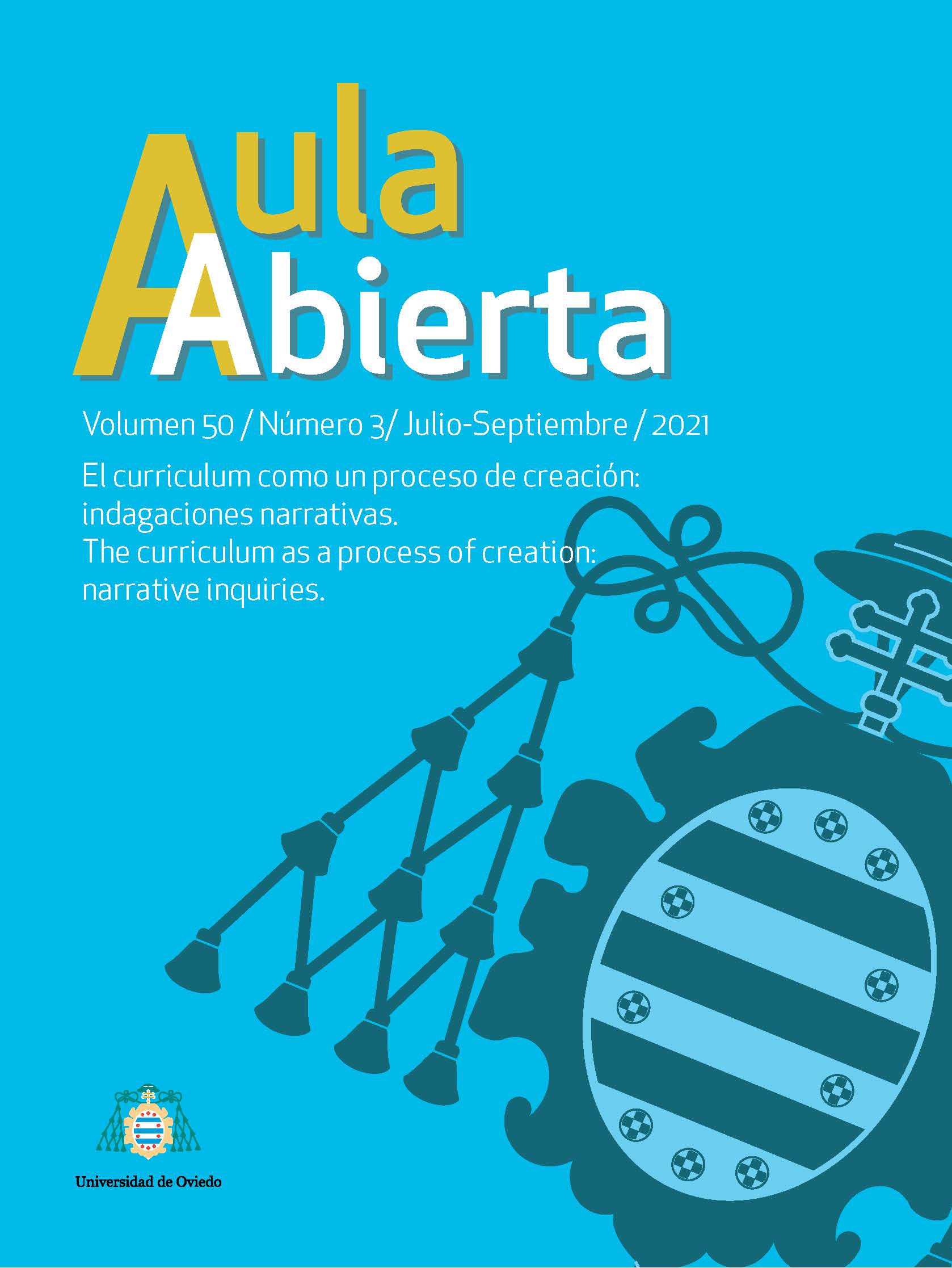Abstract
This article reproduces the conversation between a PhD candidate and her supervisor as the latter invites her to reflect on the teacher’s creativity in relation to the curriculum.
This reflection prompts a brief presentation on each of their own perspectives on the idea of “curriculum as creation” and “the creation of the curriculum”, based on their own intellectual and professional experiences. In the exchange of stories, reflections, and arguments proposed in the article, the perspective, narration, and indications of the pedagogical creativity of a primary school teacher and a researcher on education unfold. The PhD candidate contributes with questions, findings, and narrative constructions regarding her "return to school", after a certain professional journey outside primary education. On the other hand, the researcher narrates his reflections about pedagogical creativity alluding to some curriculum debates and research experiences, in order to interpellate the PhD candidate from her successive approaches to her abandonment of the "rhetoric of the curriculum" as an interpretative framework for the productivity of teachers. From the conversation between the two emerge some clues about the potentialities and limits of pedagogical narratives to account for the way in which the curriculum can be understood as a selective and consensual tradition of cultural transmission and, at the same time, as a territory for the creative experience of teachers in schools
References
Alliaud, A. (2004). La escuela y los docentes. ¿Eterno retorno o permanencia constante? Cuaderno de Pedagogía, 12(VII), 91-105.
Alliaud, A. (2011). Los maestros y sus obras. Revista Educación y pedagogía, 61(23), 81-92
Alliaud, A. (2017). Los artesanos de la enseñanza. Paidós.
Braslavsky, B. (2014 [1962]). La querella de los métodos en la enseñanza de la lectura. Unipe.
Camilloni, A. (1996). Corrientes didácticas contemporáneas. Paidós.
Cucuzza, H. R. (dir.) y Spregelburd, R. (codir.) (2012). Historia de la Lectura y la Escritura en la Argentina. Del catecismo colonial a las netbooks estatales. Calderón.
Davini, M. (2014). La formación en la práctica docente. Paidós.
De Certeau, M. (2007). La invención de lo cotidiano. Universidad Iberoamericana.
Ferreiro, E. (1997). Alfabetización. Teoría y práctica. Siglo XXI Editores.
Geertz, C. (1994). Conocimiento local. Paidós.
Giddens, A. (1995). La constitución de la sociedad. Amorrortu.
Goodson, I. (2000). El cambio en el currículum. Octaedro.
Litwin, E. (1997). Las configuraciones didácticas. Paidós.
Pujato, B. (2009). El ABC de la alfabetización. Homo Sapiens.
Ricoeur, P. (2004). Del texto a la acción. Fondo de Cultura Económica.
Stenhouse, L. (1991). Investigación y desarrollo del currículum. Paidós.
Suárez, D. (1995). Formación docente, currículum e identidad. Revista Argentina de Educación (RAE), 22, 35-52.
Suárez, D. (2003). Dispersión curricular, descalificación docente y medición de lo obvio. Revista Novedades Educativas, 155(15), 23-27.
Suárez, D. (2007). Docentes, narrativa e investigación educativa. En Sverdlick, I. (comp.), La investigación educativa. Una herramienta de conocimiento y acción. Novedades Educativas.
Suárez, D. (2017). Docentes, relatos de experiencia y saberes pedagógicos. La documentación narrativa de experiencias en la escuela. Revista de Investigación Cualitativa 2(1), 42-54. DOI: http://dx.doi.org/10.23935/2016/01034
Suárez, D., Brito, A. (2001). Documentar la enseñanza. Revista El Monitor, 4, 26-27.
Suárez, D., Metzdorff, V. (2018). Narrar la experiencia educativa como formación. Revista Espacios en Blanco, 28, 49-74.

This work is licensed under a Creative Commons Attribution-NonCommercial-NoDerivatives 4.0 International License.
Copyright (c) 2021 Aula Abierta





